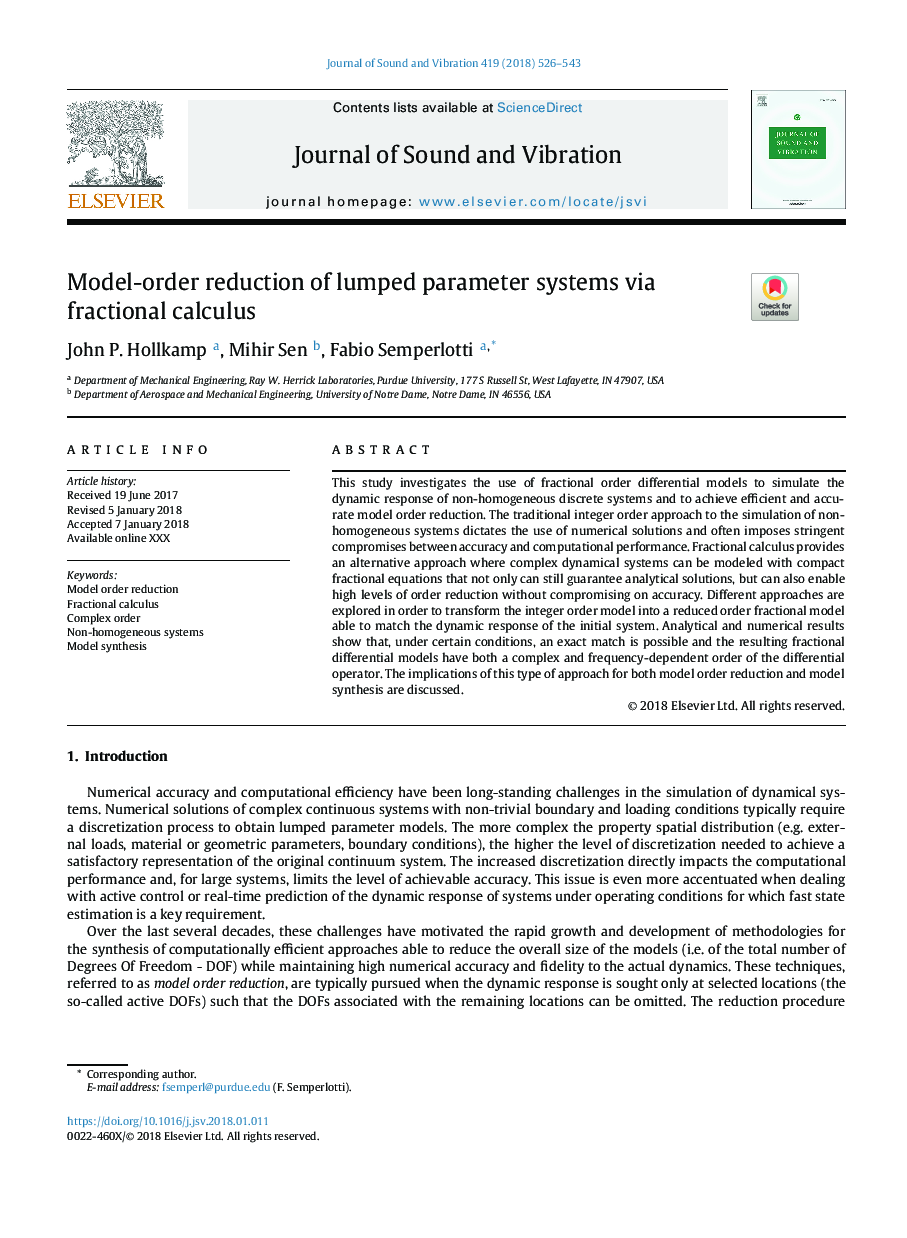| Article ID | Journal | Published Year | Pages | File Type |
|---|---|---|---|---|
| 6753728 | Journal of Sound and Vibration | 2018 | 18 Pages |
Abstract
This study investigates the use of fractional order differential models to simulate the dynamic response of non-homogeneous discrete systems and to achieve efficient and accurate model order reduction. The traditional integer order approach to the simulation of non-homogeneous systems dictates the use of numerical solutions and often imposes stringent compromises between accuracy and computational performance. Fractional calculus provides an alternative approach where complex dynamical systems can be modeled with compact fractional equations that not only can still guarantee analytical solutions, but can also enable high levels of order reduction without compromising on accuracy. Different approaches are explored in order to transform the integer order model into a reduced order fractional model able to match the dynamic response of the initial system. Analytical and numerical results show that, under certain conditions, an exact match is possible and the resulting fractional differential models have both a complex and frequency-dependent order of the differential operator. The implications of this type of approach for both model order reduction and model synthesis are discussed.
Related Topics
Physical Sciences and Engineering
Engineering
Civil and Structural Engineering
Authors
John P. Hollkamp, Mihir Sen, Fabio Semperlotti,
